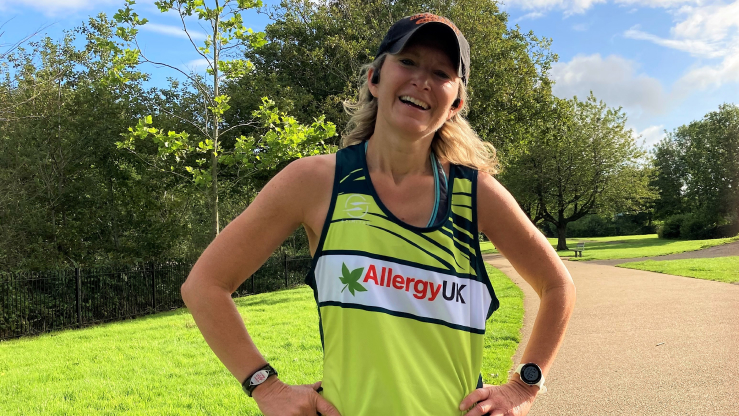Schools should…
- Develop an allergy and anaphylaxis management policy with information on what staff can do to provide a safer environment for children with food allergies
- Provide allergy and anaphylaxis first aid training for staff that includes the use of Adrenaline Auto-Injectors. This training should be updated on a regular basis
- Identify children with allergies currently enrolled or due to be enrolled
- Ensure that parents provide an emergency medical kit for their child that contains any medication required and an allergy action plan
- Have an alert system for expiry dates of each child’s Adrenaline Auto-Injector to ensure that it is still in date
- Ensure are easily accessible and that all staff know where these emergency medical kits are kept
- Write an emergency response plan that describes exactly what to do and who to contact in the event that a child has an allergic reaction
Some parents may not want their child’s identity or allergies shared with the wider school community and some children with allergies may not want to be singled out or seen to be treated differently. Discuss with each child and their parents/guardians what they feel works best for them and whether they agree to have their child’s name, photograph and relevant treatment details displayed in staff areas, canteens or other communal areas.
Bullying
Bullying is a problem that can affect all children and children with food allergies are no exception. Children may tease, taunt or try to trick them into eating a food or threaten them with the food they are allergic to.
If you are told about or discover this sort of behaviour, your school is likely to have general strategies in place for dealing with bullying situations and these should be followed.
However you can also tailor your reaction to this specific situation as follows;
- Talk to the child performing the bullying and explain that an allergic reaction, especially anaphylaxis is extremely serious and possibly life threatening
- Emphasise to the child that any behaviour or attempts to harm a child who has a food allergy with the allergen they are allergic to is treated as a serious and dangerous incident and managed accordingly
- Remind the child about the ways children with food allergies can he helped
Food treats
Many teachers and childcare workers use food treats to reward children when they have achieved something or been especially well behaved. If you have a child with food allergies in your class/classroom, avoid using food treats where possible however if you do decide to use food treats, make sure that you offer treats that do not contain any of the allergens that children in your care are allergic to.
Cow’s milk allergy is responsible for 17 of 66 (26%) of deaths in school aged children (thebmj, 2021)
Guidance for early years settings
Early years care is defined as all childcare settings, including childminders, preschools and nurseries, for children from birth to five years old. Caring for any child between these ages is a huge responsibility and comes with its own challenges, such as pre-speech communication and huge development milestones. Most parents who place their children in early years care will experience a wide range of emotions. It’s frightening trusting someone else with your baby when you have been their primary care giver since they were born. If your child lives with an allergic condition, these emotions can be heightened. Download our Childhood allergies: Guidance for Early Years Settings Factsheet for more information.
Useful allergy resources for schools
This list includes official guidelines, action plans, policy tools and just a few interesting articles that address issues around allergy management in schools. Informative resources from other countries are included for their forward thinking approaches.
BSACI Allergy Action Plans
This link provides the British Society for Allergy and Clinical Immunology (BSACI) Allergy Action plans for Children that are endorsed by the Royal College of Paediatrics and Child Health (RCPCH). The plans are for GPs, hospital doctors and other health professionals to provide guidance on how to manage allergic reactions.
Download Here
EAACI food allergy and anaphylaxis guidelines: Managing patients with food allergy in the community
Muraro A, Agache I, Clark A, Sheikh A, Roberts G, Akdis CA, Borrego LM, Higgs J, Hourihane JO, Jorgensen P, Mazon A, Parmigiani D, Said M, Schnadt S, van Os-Medendorp H, Vlieg-Boerstra BJ, Wickman M on behalf of the EAACI Food Allergy & Anaphylaxis Guidelines Group. Allergy. 69(8): 1046-57
Download Here
NICE Guidelines. Anaphylaxis: Assessment to confirm an anaphylactic episode and the decision to refer after emergency treatment for a suspected anaphylactic episode.
Download Here
The National Allergy Strategy Group (NASG) is an alliance of the professional organisation BSACI (British Society for Allergy and Clinical Immunology), the patient charities, Allergy UK (AUK), The Anaphylaxis Campaign (TAC) and the Allergy Alliance (AA) and industry partners.
Visit Website
Medical Conditions at Schools
The Health Conditions in School Alliance is made of over 30 organisations, including charities, healthcare professionals and trade unions who work collaboratively to make sure children with health conditions get the care they need in school.
AAI’s in Schools – Wales
An amendment to the Human Medicines Regulations 2012 allows schools across the UK to obtain ‘adrenaline pens’, without a prescription, for use in emergencies from 1 October 2017. In Wales, this applies to local authority maintained nurseries, primary, secondary and special schools, pupil referral units (PRUs) and independent schools.
Guidance for Wales is available at –
English Version

 Helpline
Helpline







